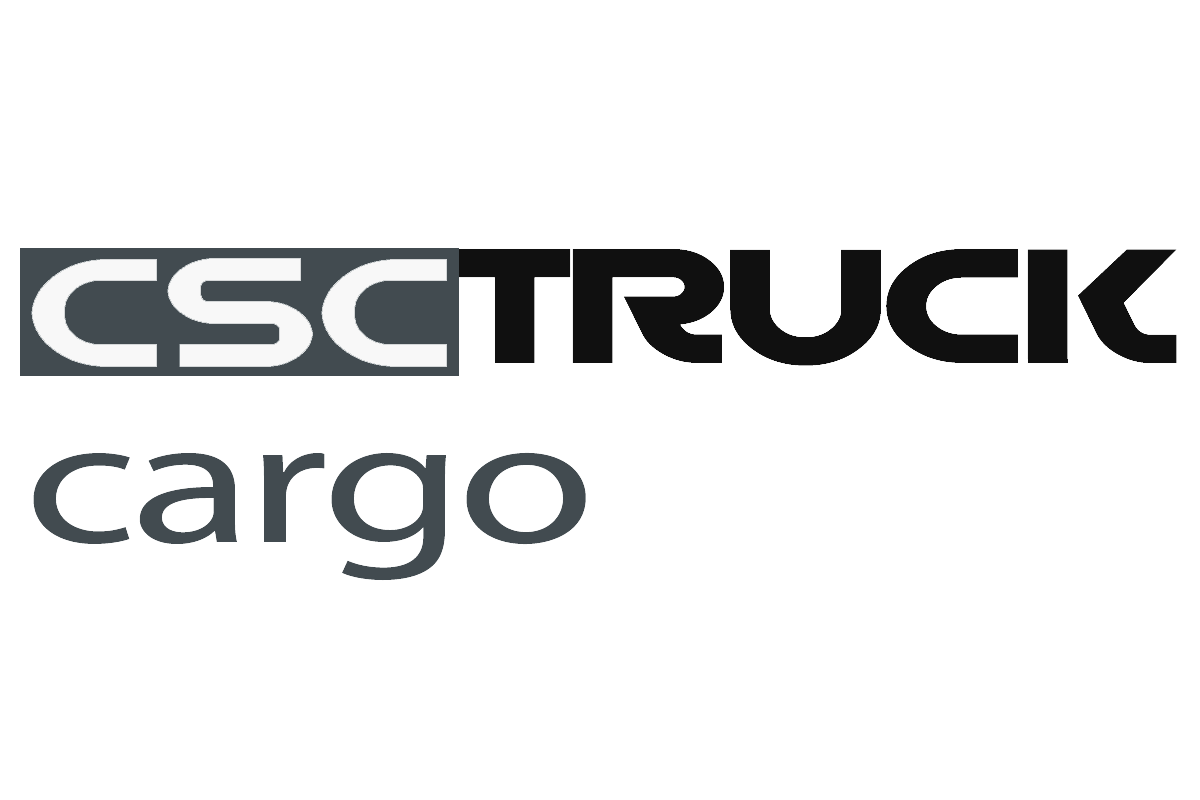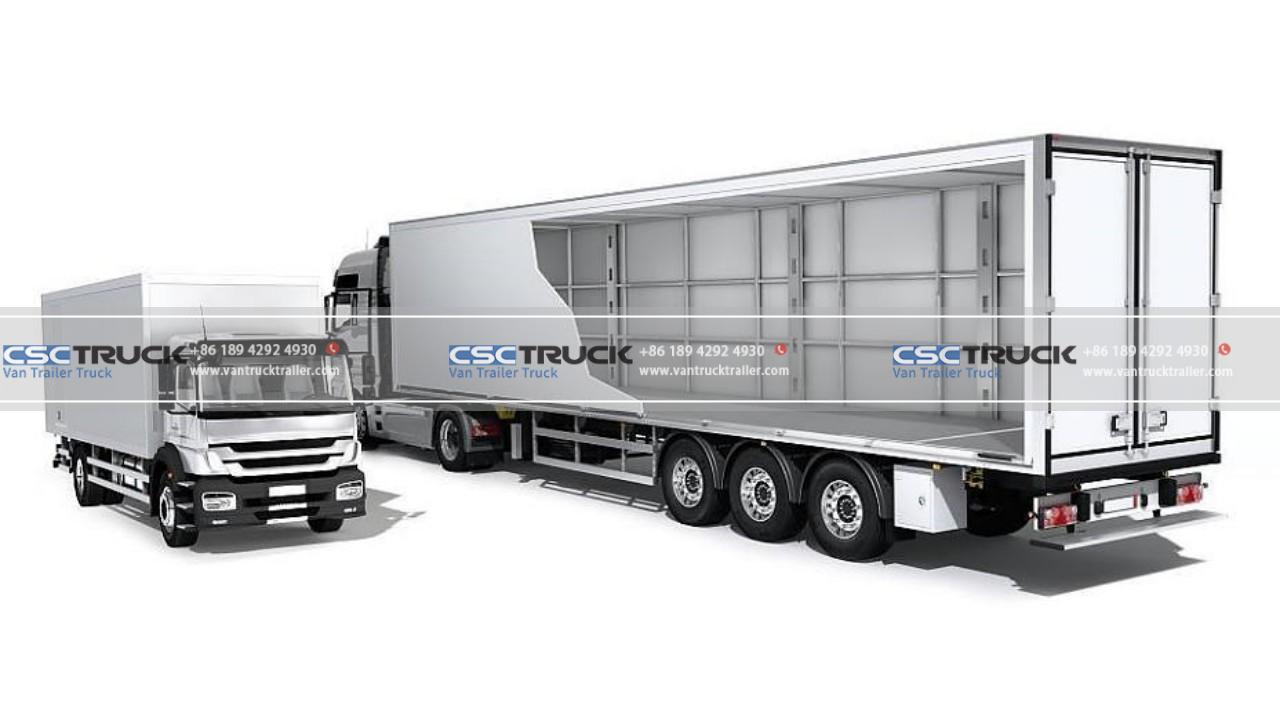In the world of transportation and logistics, various types of trucks are used to efficiently move goods from one place to another. Two commonly used truck configurations are van trucks and trailer trucks. While both serve the purpose of transporting goods, there are distinct differences between them. In this article, we will delve into the characteristics and advantages of van trucks and trailer trucks, helping you understand their unique features and applications.
Van trucks, also known as box trucks or straight trucks, feature an enclosed cargo area integrated with the truck cab. The cargo area is typically made of a rigid structure with walls, a roof, and a rear door for loading and unloading. Van trucks are available in various sizes, from small vehicles suitable for local deliveries to large trucks capable of long-haul transportation.
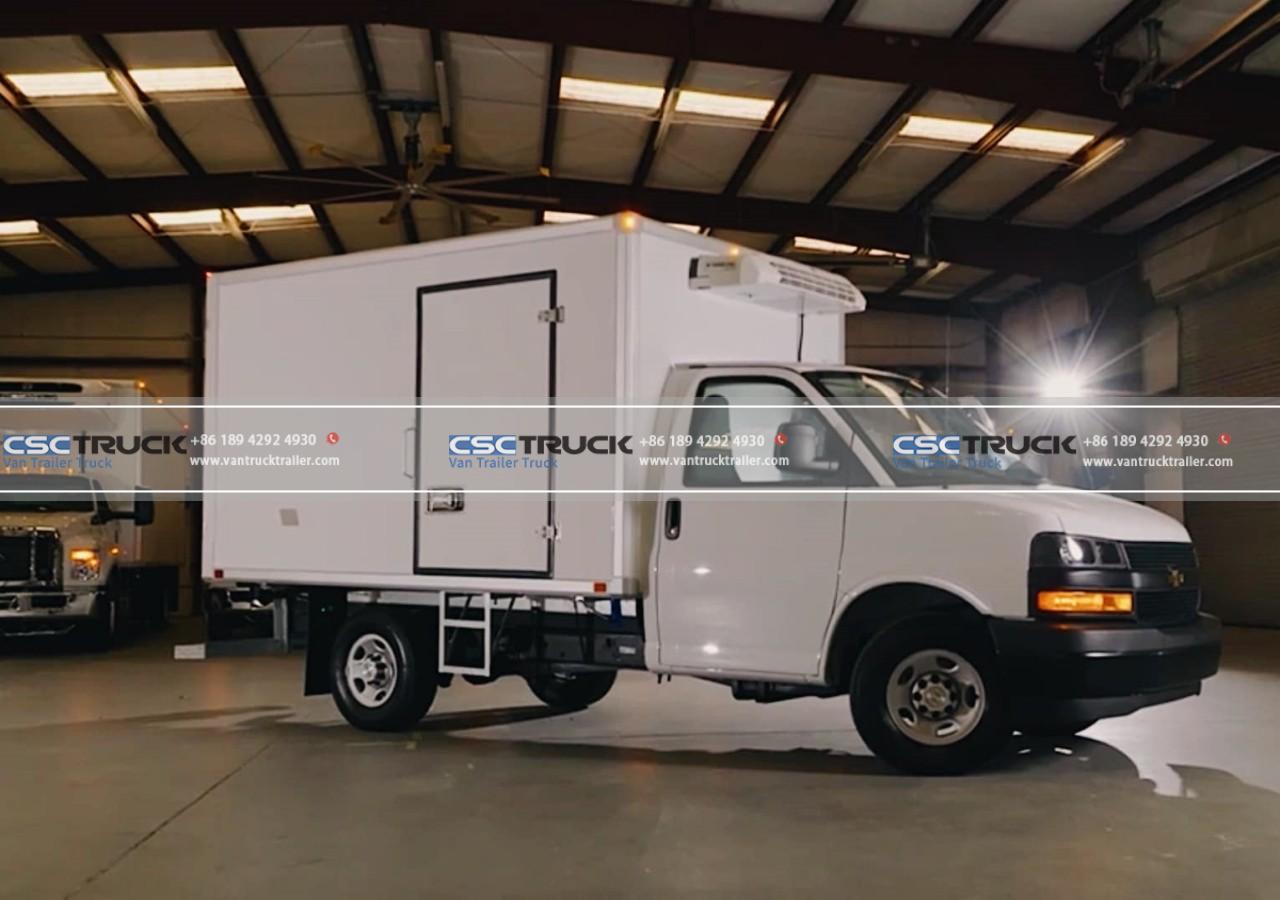 One of the main advantages of van trucks is their versatility. They are ideal for transporting goods that require protection from the elements, such as furniture, electronics, perishable goods, or fragile items. The enclosed cargo area provides security, ensuring that the goods remain safe and protected during transit. Additionally, van trucks offer ease of access to the cargo through rear doors or side doors, facilitating efficient loading and unloading operations.
One of the main advantages of van trucks is their versatility. They are ideal for transporting goods that require protection from the elements, such as furniture, electronics, perishable goods, or fragile items. The enclosed cargo area provides security, ensuring that the goods remain safe and protected during transit. Additionally, van trucks offer ease of access to the cargo through rear doors or side doors, facilitating efficient loading and unloading operations.
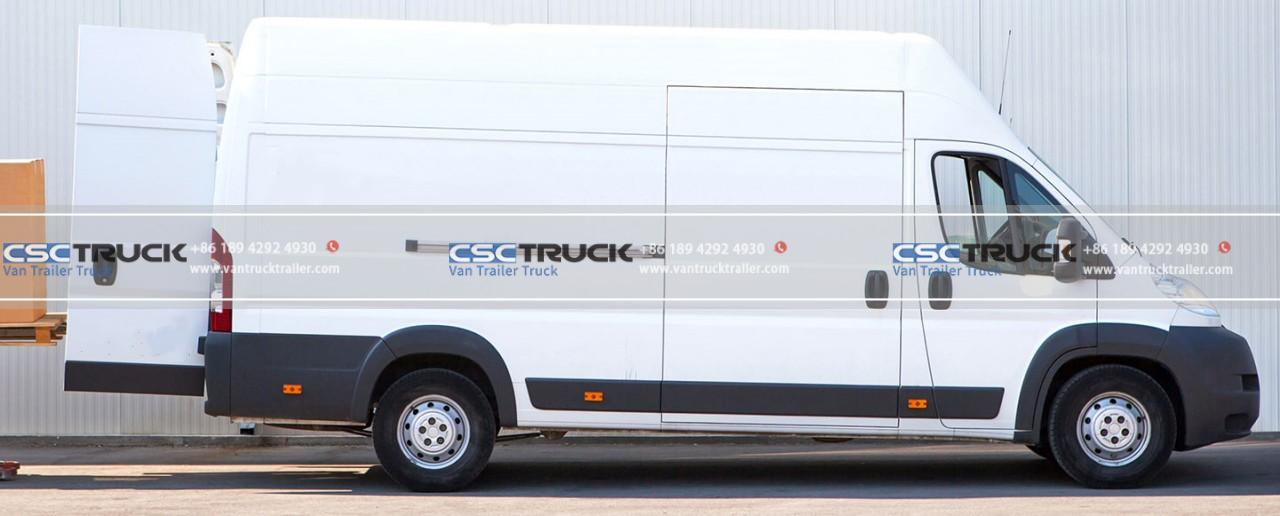 Van trucks also offer maneuverability and accessibility advantages. Their compact size allows them to navigate through narrow streets, tight spaces, or urban areas where larger trucks may struggle. This makes van trucks suitable for urban deliveries, local distribution, and last-mile logistics, where efficient and timely delivery is crucial.
Van trucks also offer maneuverability and accessibility advantages. Their compact size allows them to navigate through narrow streets, tight spaces, or urban areas where larger trucks may struggle. This makes van trucks suitable for urban deliveries, local distribution, and last-mile logistics, where efficient and timely delivery is crucial.
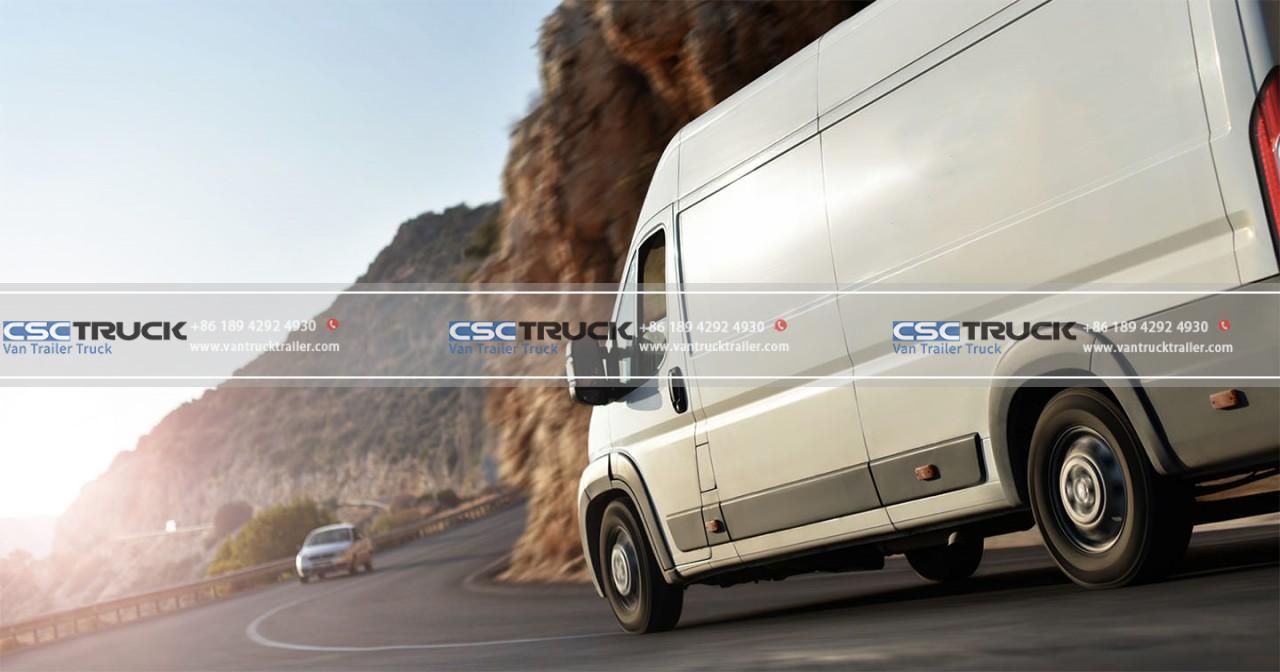
Trailer trucks, also referred to as tractor-trailers or semi-trucks consist of a truck cab (often referred to as a tractor or prime mover) that pulls a separate cargo-carrying unit known as a trailer. The trailer is connected to the tractor through a fifth-wheel hitch, enabling easy attachment and detachment for loading and unloading operations. Trailer trucks are known for their capacity to carry large volumes of goods over long distances.
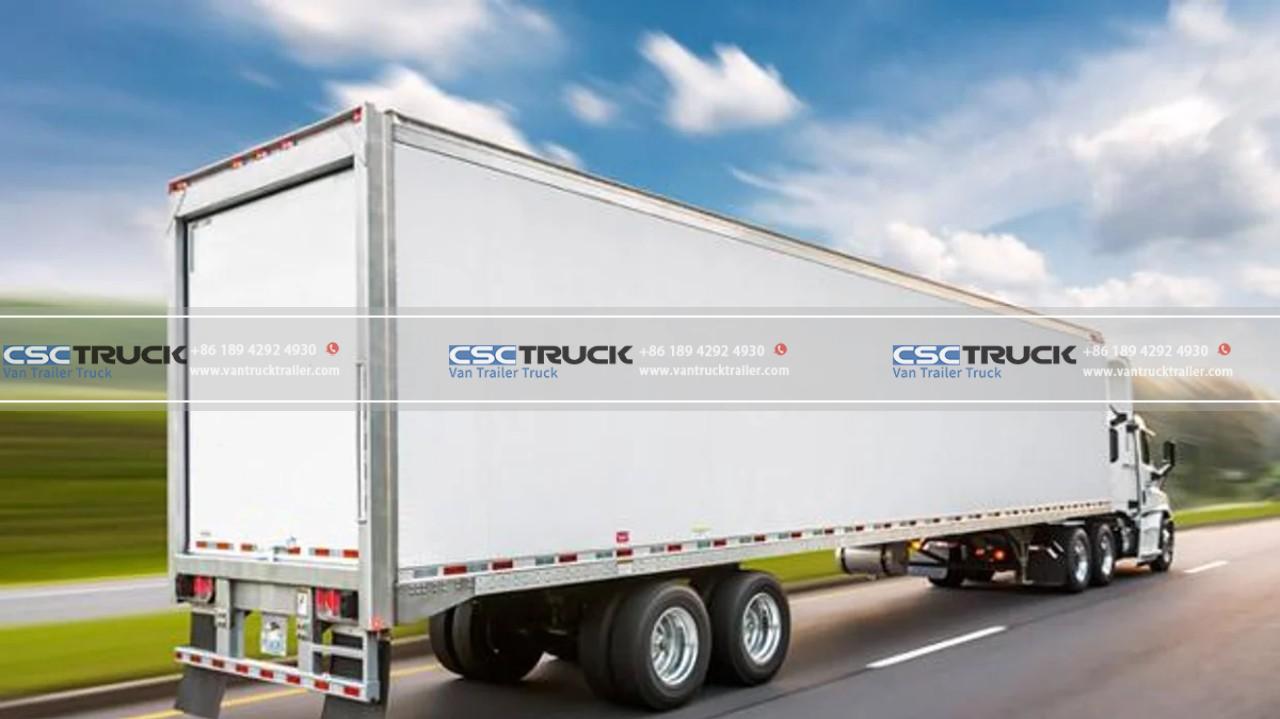 One of the key advantages of trailer trucks is their high payload capacity. The separate trailer allows for more extensive cargo space, accommodating larger volumes of goods compared to van trucks. This makes them suitable for long-haul transportation, where maximizing cargo capacity is essential for cost efficiency.
One of the key advantages of trailer trucks is their high payload capacity. The separate trailer allows for more extensive cargo space, accommodating larger volumes of goods compared to van trucks. This makes them suitable for long-haul transportation, where maximizing cargo capacity is essential for cost efficiency.
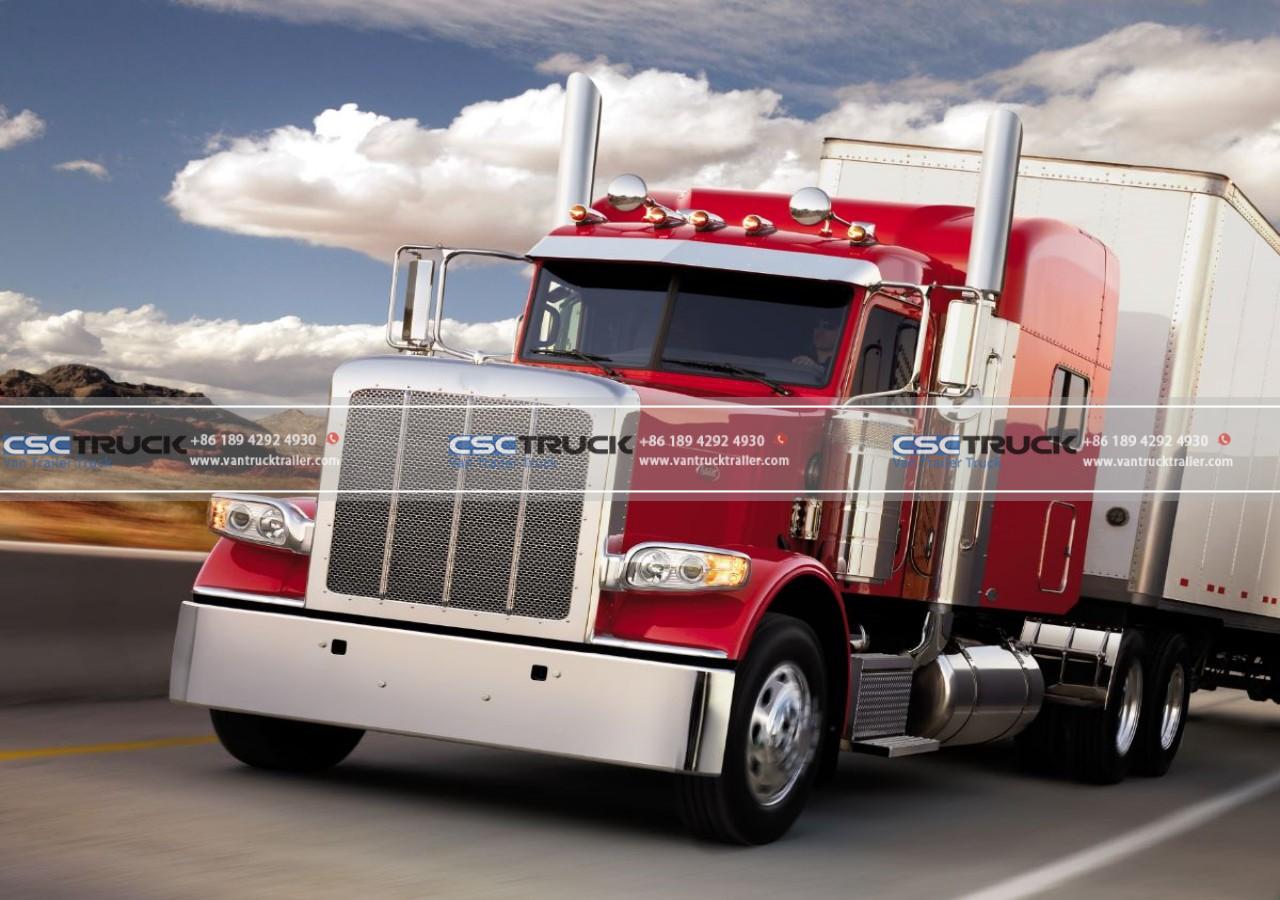 Trailer trucks are also known for their versatility in terms of trailer types. Depending on the specific transportation requirements, different types of trailers can be used, such as flatbeds, refrigerated trailers, tankers, or specialized containers. This flexibility allows for the transportation of various goods, including bulk materials, refrigerated goods, liquids, or oversized items.
Trailer trucks are also known for their versatility in terms of trailer types. Depending on the specific transportation requirements, different types of trailers can be used, such as flatbeds, refrigerated trailers, tankers, or specialized containers. This flexibility allows for the transportation of various goods, including bulk materials, refrigerated goods, liquids, or oversized items.
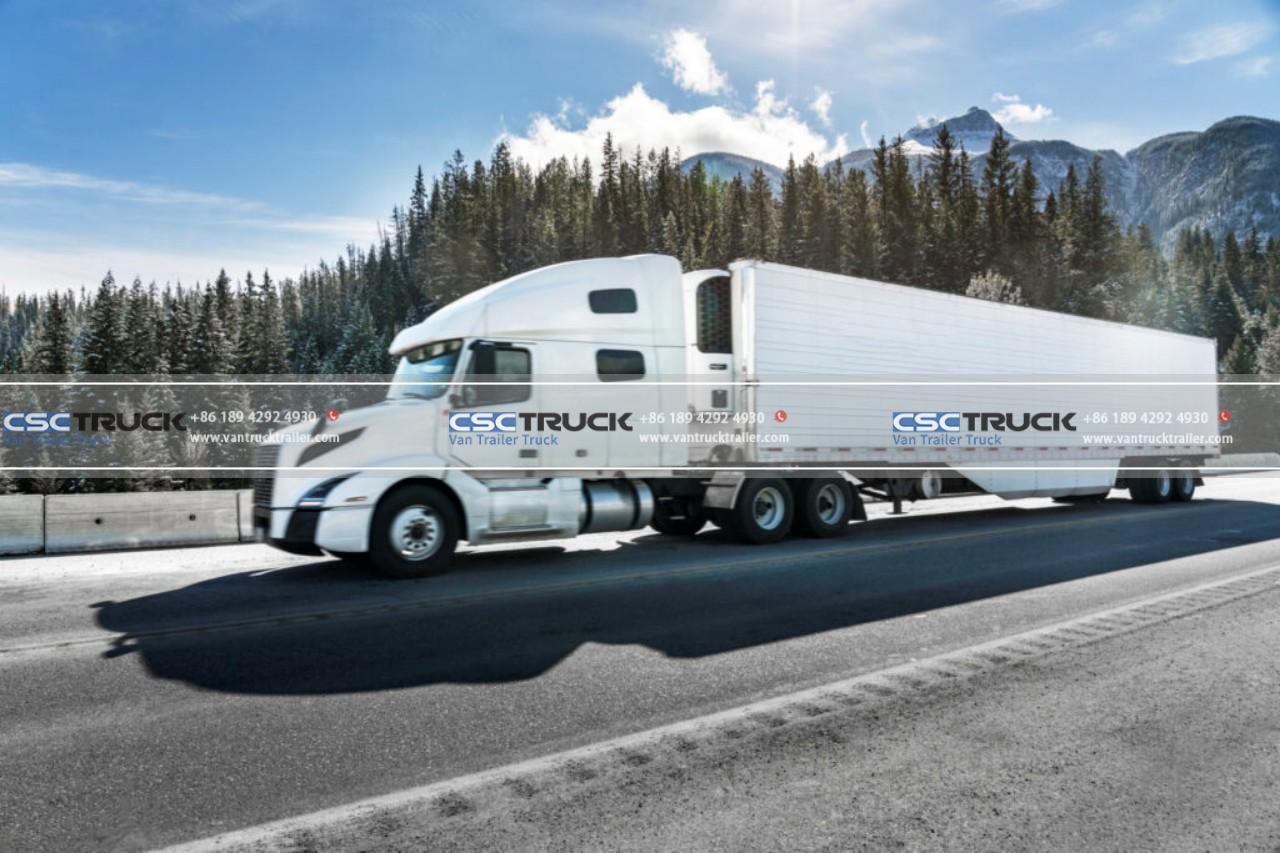 Another advantage of trailer trucks is the option for intermodal transportation. Intermodal freight involves the use of multiple modes of transportation, such as rail, ship, or air, in addition to road transport. Trailer trucks can easily connect with these different modes, as trailers can be transferred from trucks to trains or ships without the need to unload and reload the cargo. This intermodal capability enhances efficiency and allows for seamless transportation across different regions or countries.
Another advantage of trailer trucks is the option for intermodal transportation. Intermodal freight involves the use of multiple modes of transportation, such as rail, ship, or air, in addition to road transport. Trailer trucks can easily connect with these different modes, as trailers can be transferred from trucks to trains or ships without the need to unload and reload the cargo. This intermodal capability enhances efficiency and allows for seamless transportation across different regions or countries.

Understanding the Differences:
While both van trucks and trailer trucks serve the purpose of transporting goods, there are some key differences between them. Van trucks offer enclosed cargo space within the truck body, providing security and protection for goods that require shelter from the elements. They are versatile, maneuverable, and suitable for urban deliveries or local distribution.
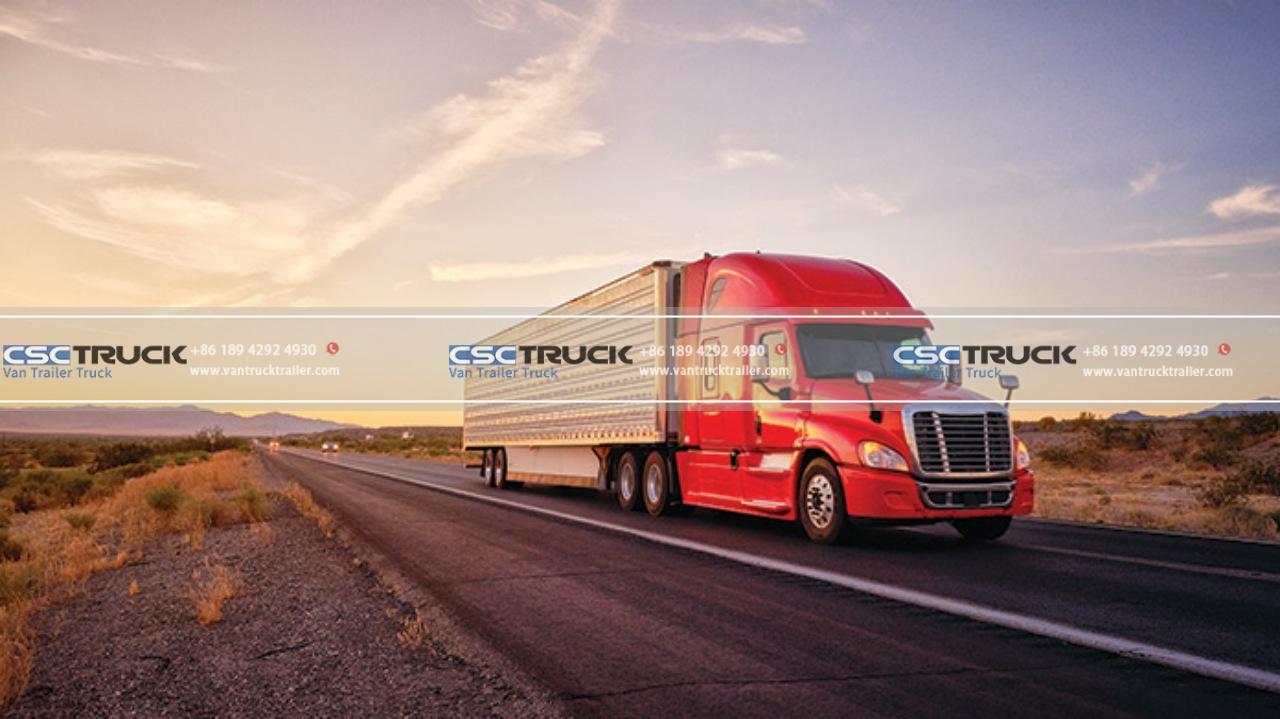 On the other hand, trailer trucks feature a separate trailer unit, offering a higher payload capacity and greater flexibility in terms of trailer types. They are designed for long-haul transportation, intermodal operations, and the efficient movement of large volumes of goods.
On the other hand, trailer trucks feature a separate trailer unit, offering a higher payload capacity and greater flexibility in terms of trailer types. They are designed for long-haul transportation, intermodal operations, and the efficient movement of large volumes of goods.
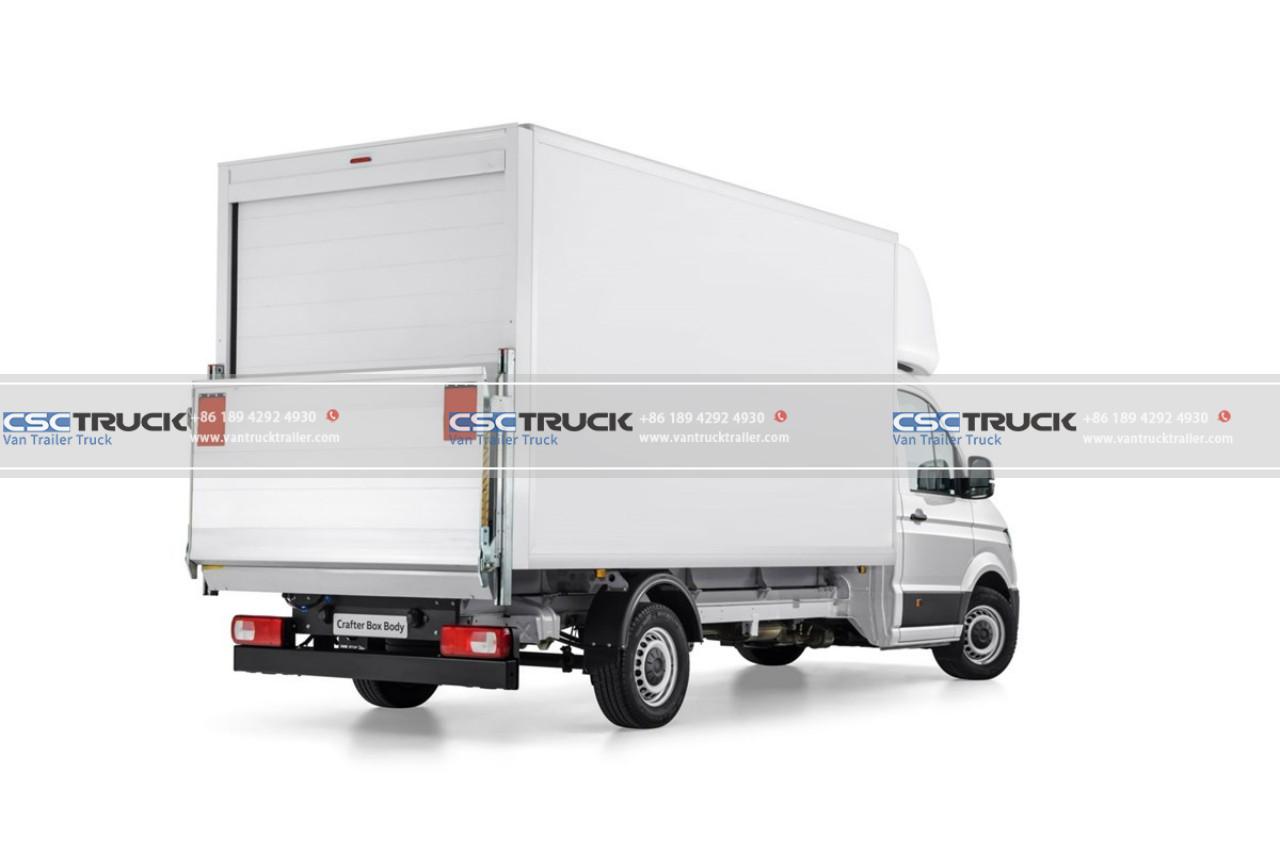 When deciding between a van truck and a trailer truck, consider the following factors:
When deciding between a van truck and a trailer truck, consider the following factors:
- Cargo Requirements: Evaluate the type of goods you need to transport. If you primarily deal with smaller, delicate, or weather-sensitive items, a van truck may be the better choice. However, if you frequently handle large volumes of goods, oversized items, or specialized cargo, a trailer truck with its higher payload capacity and various trailer options would be more suitable.
- Transportation Distance: Consider the distance you need to cover. Van trucks are well-suited for shorter distances or local deliveries due to their maneuverability and ease of access. Trailer trucks excel in long-haul transportation, especially when efficiency in terms of volume and cost is paramount.
- Delivery Requirements: Assess the specific delivery requirements of your business. If you need to make frequent stops, access tight urban areas, or navigate through congested traffic, a van truck‘s agility and maneuverability will prove advantageous. On the other hand, if you primarily focus on intercity or interstate transportation, where maximizing cargo capacity and efficiency are crucial, a trailer truck may be the better choice.
- Operational Considerations: Evaluate your operational capabilities and resources. Van trucks are typically easier to operate and maintain, requiring less training and specialized skills. They also require fewer parking and storage spaces compared to trailer trucks. However, if you have the infrastructure, equipment, and expertise to handle trailer operations, the versatility and efficiency of a trailer truck can offer significant benefits in terms of cost-effectiveness and scalability.
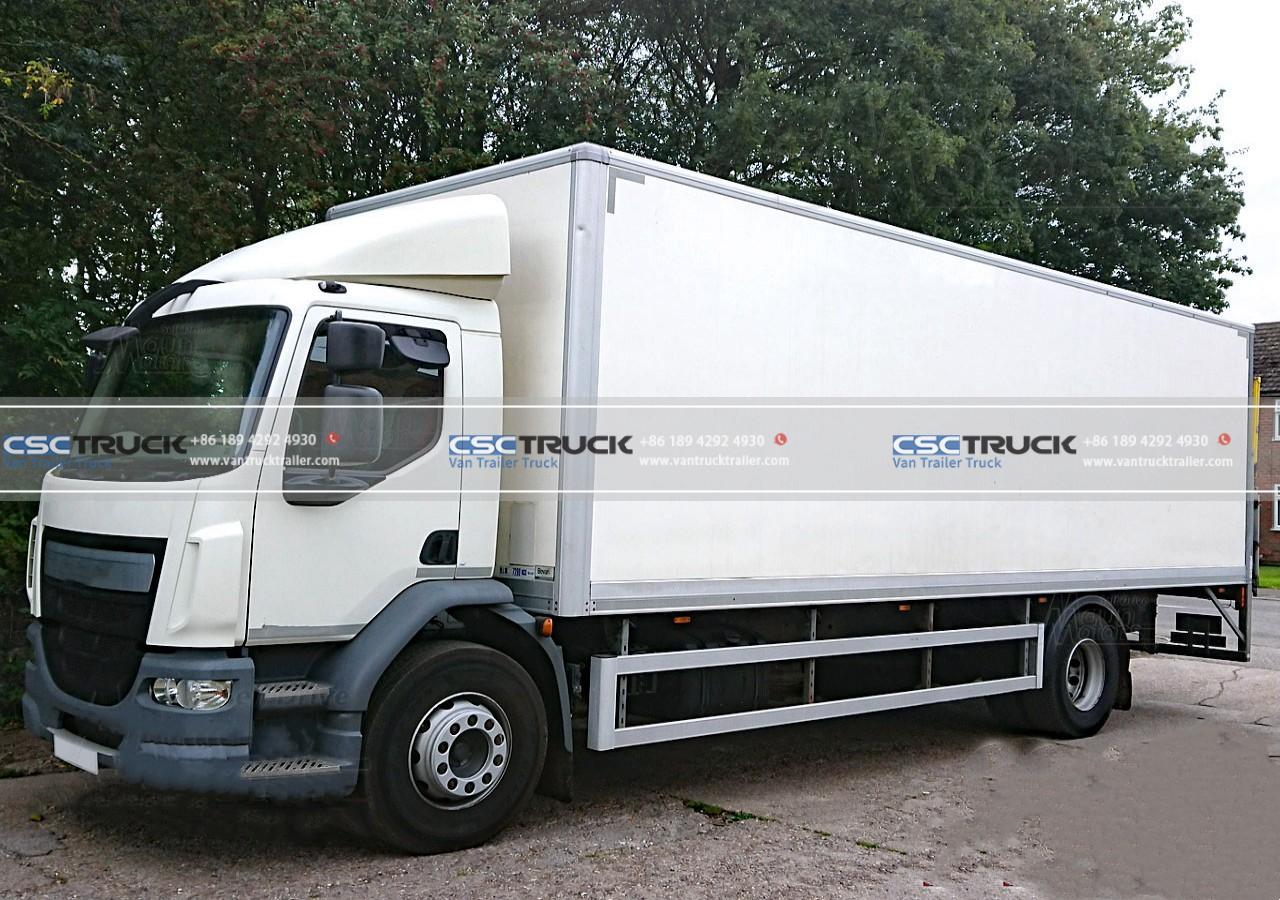 Ultimately, the choice between a van truck and a trailer truck depends on your specific transportation needs and business requirements. It may be helpful to consult with industry experts, evaluate cost projections, and analyze your existing infrastructure to make an informed decision.
Ultimately, the choice between a van truck and a trailer truck depends on your specific transportation needs and business requirements. It may be helpful to consult with industry experts, evaluate cost projections, and analyze your existing infrastructure to make an informed decision.
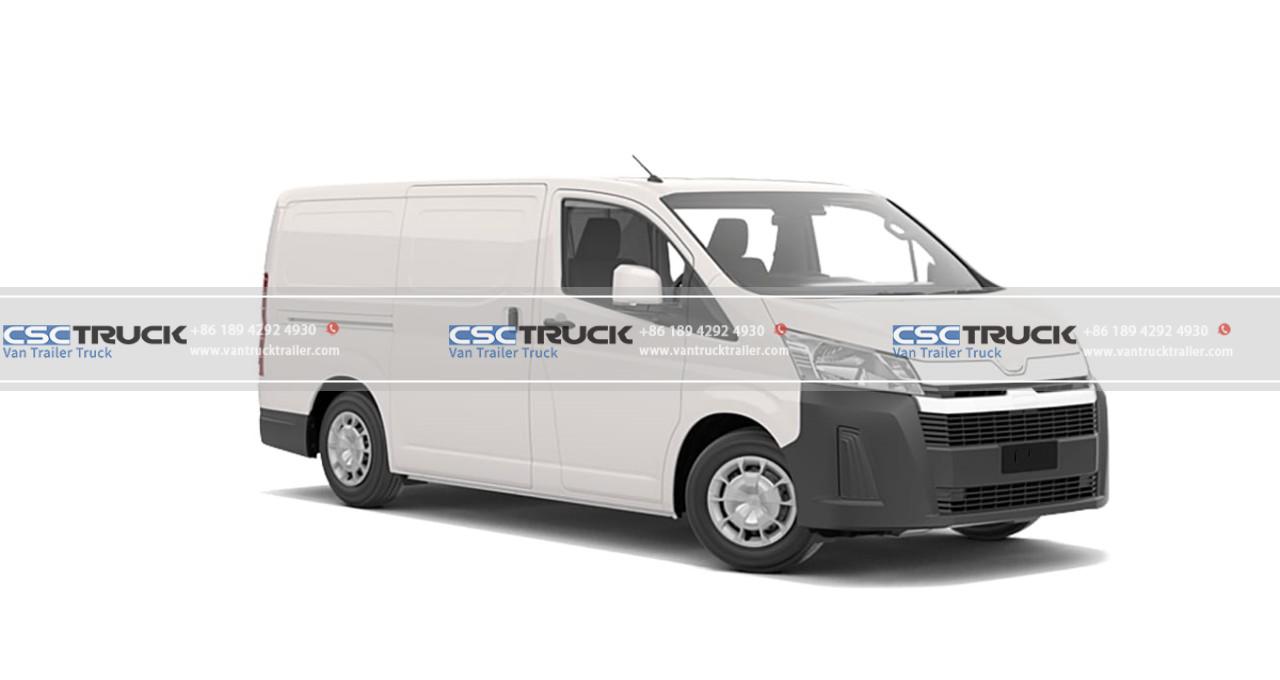 In conclusion, van trucks and trailer trucks are 2 distinct options for transporting goods, each with its advantages and considerations. Van trucks excel in versatility, maneuverability, and suitability for local deliveries, while trailer trucks offer higher payload capacity, flexibility in trailer types, and efficiency in long-haul transportation. Understanding the differences between these truck configurations and carefully assessing your cargo requirements, transportation distance, delivery needs, and operational capabilities will enable you to make the right choice for your business. By selecting the most appropriate truck option, you can optimize your transportation operations, enhance efficiency, and meet the demands of your customers effectively.
In conclusion, van trucks and trailer trucks are 2 distinct options for transporting goods, each with its advantages and considerations. Van trucks excel in versatility, maneuverability, and suitability for local deliveries, while trailer trucks offer higher payload capacity, flexibility in trailer types, and efficiency in long-haul transportation. Understanding the differences between these truck configurations and carefully assessing your cargo requirements, transportation distance, delivery needs, and operational capabilities will enable you to make the right choice for your business. By selecting the most appropriate truck option, you can optimize your transportation operations, enhance efficiency, and meet the demands of your customers effectively.
